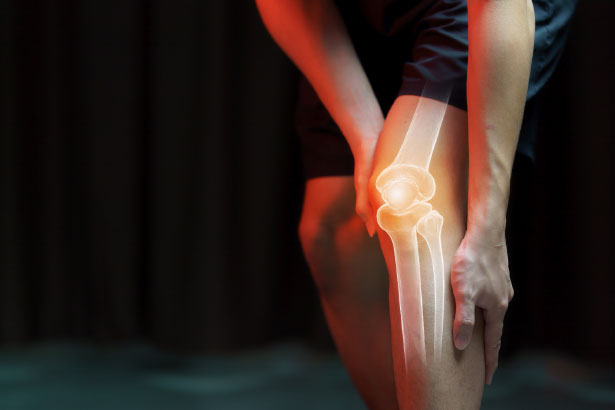
Understanding Intermittent Fasting: Explor....
Intermittent fasting has gained popularity as a dietary strategy for weight management and overall health improvement. This approach involves cycling between periods of eating and fasting, with various methods such as the 16/8 method, the 5:2 diet, and alternate-day fasting.Benefits of Intermittent Fasting:Weight Loss: Intermittent fasting can lead to reduced calorie intake, promoting weight loss and fat loss while preserving muscle mass.Improved Metabolic Health: Fasting periods can improve insulin sensitivity, lower blood sugar levels, and reduce inflammation.Enhanced Brain Function: Some studies suggest that intermittent fasting may support brain health, improving cognitive function and reducing the risk of neurodegenerative diseases.Longevity: Animal studies indicate that intermittent fasting may extend lifespan and promote cellular repair processes.Risks and Considerations:Nutrient Deficiency: Restricting eating windows can make it challenging to get all essential nutrients, leading to potential deficiencies if not planned properly.Eating Disorders: Those with a history of eating disorders should approach intermittent fasting with caution, as it may trigger unhealthy eating patterns.Fatigue and Weakness: Initial phases of intermittent fasting can cause fatigue, dizziness, and difficulty concentrating.Not Suitable for Everyone: Pregnant women, individuals with certain medical conditions, and those with high energy demands may need to avoid intermittent fasting.In conclusion, while intermittent fasting can offer several health benefits, it is important to approach it with a well-planned strategy and consider individual health needs and risks. Consulting with a healthcare professional before starting any fasting regimen is recommended to ensure it is safe and appropriate for your specific situation.

The Mind-Body Connection: Understanding St....
The intricate relationship between the mind and body significantly influences our overall health, particularly when it comes to stress and its impact on digestive disorders. This exploration delves into how psychological stress can exacerbate conditions like irritable bowel syndrome (IBS), gastroesophageal reflux disease (GERD), and other gastrointestinal issues.Key Points of Exploration:Physiological Response to Stress:Understanding the body's stress response and how the release of stress hormones like cortisol and adrenaline affects the digestive system.The role of the gut-brain axis in transmitting stress signals between the brain and the gut.Stress-Related Digestive Disorders:Investigating common digestive disorders that are often linked to stress, such as IBS, GERD, and peptic ulcers.Examining how stress can lead to symptoms like abdominal pain, bloating, indigestion, and altered bowel habits.Mechanisms of Impact:How stress can alter gut motility, increase gut permeability, and disrupt the balance of gut microbiota.The influence of stress on inflammation and immune responses within the gastrointestinal tract.Psychological Factors:The impact of anxiety, depression, and chronic stress on the onset and progression of digestive disorders.The role of psychological therapies, such as cognitive-behavioral therapy (CBT), in managing stress-related digestive issues.Coping Strategies and Treatments:Effective stress management techniques, including mindfulness, meditation, and relaxation exercises, to improve digestive health.The importance of a balanced diet, regular exercise, and adequate sleep in mitigating the effects of stress on the digestive system.Medical and therapeutic interventions to address both psychological and physiological aspects of stress-related digestive disorders.In conclusion, recognizing and addressing the mind-body connection is crucial for managing and preventing stress-related digestive disorders. By adopting a holistic approach that considers both mental and physical health, individuals can better navigate the challenges posed by stress and achieve improved digestive wellness.

Managing Stress for Hormonal Health: Strat....
Stress significantly impacts hormonal health, influencing everything from mood and energy levels to reproductive health and metabolic functions. Understanding how to manage stress effectively is crucial for maintaining hormonal balance and overall well-being. This guide explores the intricate relationship between stress and hormones and provides practical strategies to build resilience and achieve hormonal harmony.Key Areas of Focus:Understanding Hormonal Health:Overview of key hormones affected by stress, including cortisol, adrenaline, insulin, thyroid hormones, and sex hormones (estrogen, progesterone, and testosterone).How chronic stress disrupts hormonal balance, leading to issues like adrenal fatigue, thyroid dysfunction, insulin resistance, and reproductive health problems.Impact of Stress on Hormones:The physiological process of the stress response and its effects on the endocrine system.The connection between stress and common hormonal disorders such as polycystic ovary syndrome (PCOS), hypothyroidism, and menstrual irregularities.Effective Stress Management Techniques:Mindfulness and Meditation: Practices to calm the mind, reduce stress levels, and promote hormonal balance.Regular Physical Activity: How exercise helps to regulate stress hormones and improve overall hormonal health.Balanced Nutrition: The importance of a diet rich in whole foods, healthy fats, and nutrients that support endocrine function.Adequate Sleep: Ensuring quality sleep to maintain the body’s natural hormonal rhythms.Lifestyle Modifications:Techniques for incorporating relaxation and self-care into daily routines.Strategies to manage time effectively, reduce overwhelm, and create a balanced lifestyle.Therapeutic Approaches:The role of professional guidance, including counseling, cognitive-behavioral therapy (CBT), and stress management programs.Integrative health approaches such as acupuncture, yoga, and aromatherapy for stress reduction and hormonal support.Building Resilience:Developing emotional resilience through positive thinking, gratitude practices, and social support.How resilience contributes to better stress management and hormonal stability.In conclusion, managing stress is essential for maintaining hormonal health and overall well-being. By adopting a comprehensive approach that includes lifestyle changes, stress reduction techniques, and professional support, individuals can achieve better hormonal balance and build resilience against the challenges of stress.

Foot Care Basics for Elderly Diabetics: A ....
Foot issues occur in elderly diabetic individuals because diabetes damages nerves (neuropathy) and lowers the blood supply due to excess blood sugar. It is more difficult to see injuries and takes longer to heal, with a higher rate of serious complications. Thats why diabetic foot care for seniors is so important each day. Caring daily habits can prevent infections, keep feet moving, and eliminate severe problems. This manual teaches an easy checklist to keep elderly diabeticsfeet healthy and safe.Check Feet DailyDaily checking of the feet is the most essential diabetic foot care for seniors. This daily checkup ensures that issues are detected early, before they become severe.Caregivers must inspect for:Cuts, blisters, or scratchesRedness or swellingSkin color changesIngrown toenailsInfection signs (pus, heat, or foul smell)

Managing Ventilation and Respiratory Failu....
The home environment works well to safely provide therapy for patients living with chronic lung disorders who need ventilator assistance. Home respiratory failure management needs medical supplies plus an organized space maintained by trained caregivers who have direct access to health experts. A home ICU setup with the right medical equipment supports patients who need breathing help so they can live better with fewer limitations.This blog explains how to set up a ventilation system at home through detailed information about choosing patients, installing safe equipment, handling emergencies, handling infections, and training caregivers. The document explains that patients require round-the-clock emergency care from medical teams, as well as strong support for both themselves and their caregivers. Correct home ventilation setup and management help lower patient readmissions while improving their overall results. A specific plan for ICU at home serves both their safety and health needs.Caregiver Training and EmpowermentThis makes it necessary for caregivers to play a role in assisting patients in managing their home ventilators. If the organization fails to train staff members on those aspects, it will not be able to offer training programs to customers.Operating ventilation equipmentpatients find breathing trouble before it becomes dangerous.Performing basic troubleshootingAdministering emergency procedures

Arthritis Treatment Without Surgery: How t....
Arthritis Treatment Without Surgery: How to Manage Chronic Arthritis Pain?Arthritis is one of the most commonly observed and treated orthopaedic conditions across the globe. Limited mobility, joint pain, and inflammation are the immediately noted symptoms. Usually, surgery is the only safe and successful option recommended to address chronic arthritis. However, there have been people who have been able to avoid surgery and manage chronic arthritis painCan it be managed? Yes, it can be through holistic healing methods as long as it hasn’t deteriorated to that stage where surgery is the only option.This article serves as an eye-opener to arthritis treatment without surgery.Managing Chronic Arthritis is indeed challenging, if not impossible. Understanding and following certain simple practices can help you a lot.Stay Active Without Overstressing YourselfMaintain a positive attitude and stay active through mild walking and yoga to reduce the stiffness of joints. This boosts your overall well-being.Check Your Food HabitsProcessed and spicy food can aggravate chronic arthritis symptoms. Instead, whole grains and leafy vegetables as a part of a nutrition-rich diet, and drink lots of water.Utilize Cold and Hot TherapyArthritis pain can be very tough to handle, especially if it is chronic in nature. Try to relax your muscles and joints through hot and cold therapies as and when applicable. This will give you much-needed relief.PhysiotherapyTalk to your doctor and include physiotherapy in your daily routine activities. It helps in giving your joints that much-needed mobility to help to stay active.Explore Natural RemediesMedical applicants rich in natural products like turmeric can help a great deal in reducing inflammation. However, seek your doctor’s advice before you begin.
